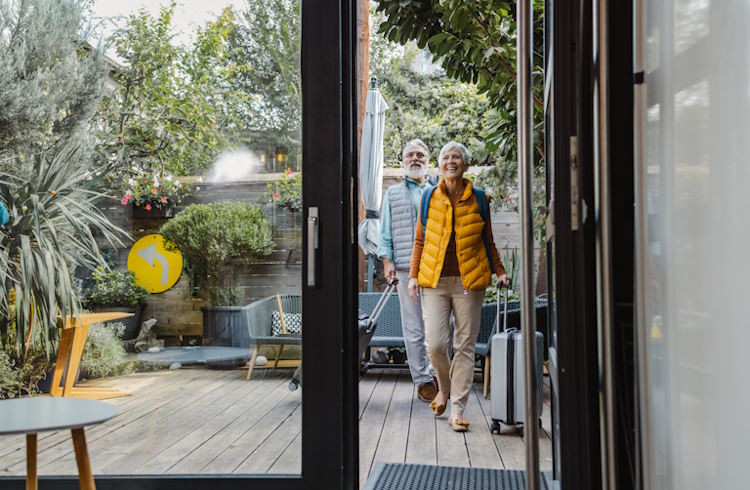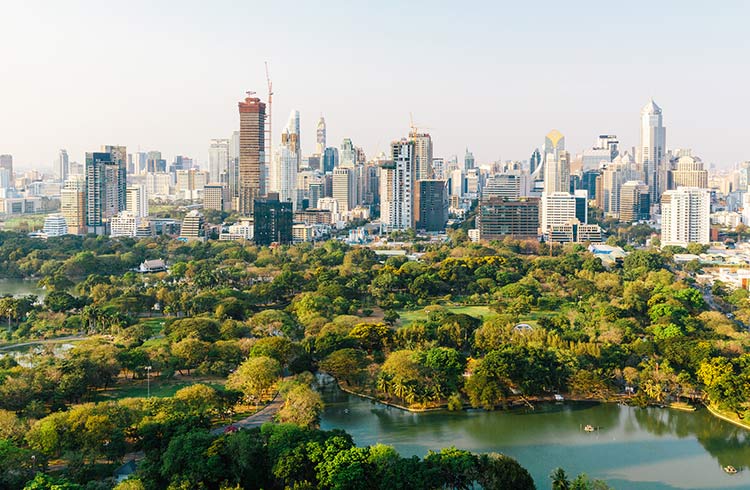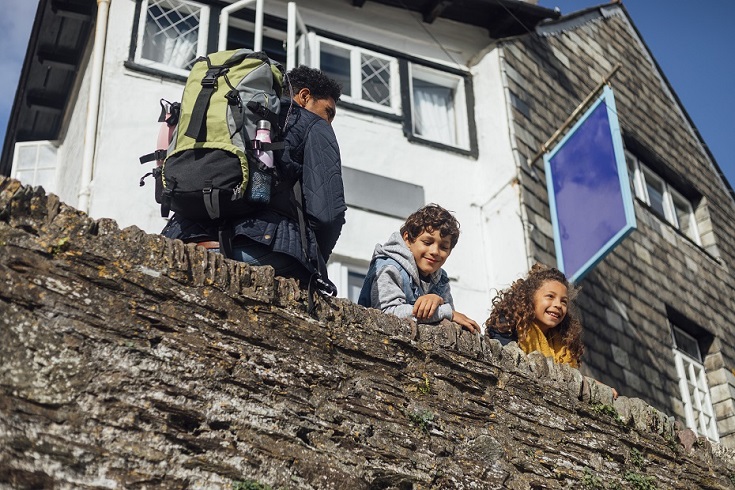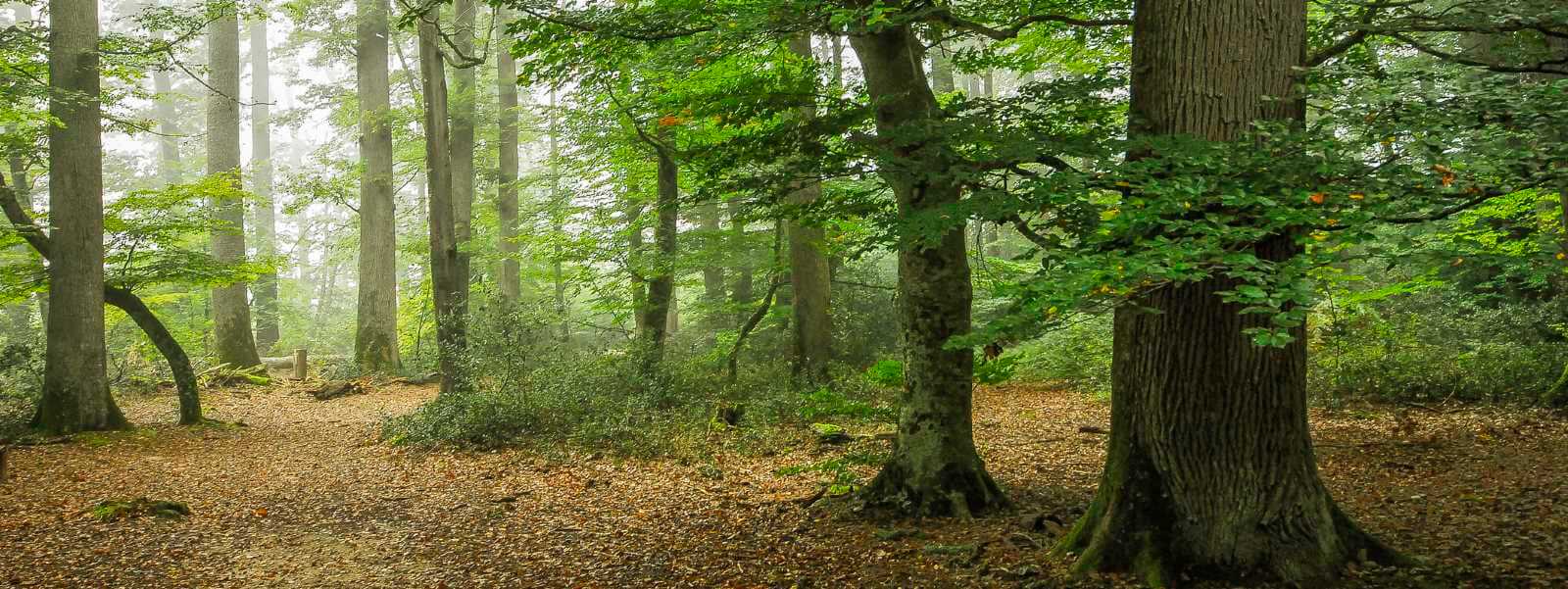Is Airbnb Still an Ethical Option for Travelers?
Short-stay accommodation platforms like Airbnb were hailed as a way for travelers to enjoy a more authentic, local experience. Then came the backlash. Can these rentals still be part of an ethical travel experience?
 Photo © Getty Images / Milko
Photo © Getty Images / Milko
The surge in short-term residential platforms has transformed the travel industry in recent decades. So why is the sector being blamed for everything from the housing crisis to overtourism worldwide?
- The rise and rise of Airbnb
- The issue with short-stay vacation rentals
- Are restrictions on STRAs justified?
- Balancing the tourism economy and affordable housing
- How travelers can help change the industry for the better
- Why choose a short-stay vacation rental?
- Getting back to the original idea behind Airbnb
The rise and rise of Airbnb
Back in the day – 2008 to be exact – many travelers discovered a new way to find a roof over their head in far-flung areas around the globe.
This was the year Airbnb came into play and, while it wasn’t the first short-stay accommodation platform, it revolutionized travel for many. Choices opened up for travelers, beyond hotels and motels. And better still, they could vet their options with online reviews from previous users.
These platforms also provided a way for locals to rent out their homes and make some extra cash from travelers.
Now Airbnb is one of the world’s most-visited travel websites and competitors, like VRBO and Booking.com, are also big players in the hosted and non-hosted short-stay residential accommodation (STRA) sector.
The issue with short-stay vacation rentals
In many tourist hotspots, local governments are now trying to curb the growth of STRAs, particularly non-hosted stays (where the host does not live on site permanently), to address chronic housing shortages and rising rents for locals.
In 2023, one of Italy’s most popular cities and a World Heritage UNESCO site, Florence, banned any new Airbnbs in the historic center of the city, due to overtourism.
In Australia, state governments are imposing restrictions on the sector in an attempt to confront a housing shortage and surging rents. The state of Victoria imposed a levy on short-term rental property owners and restrictions are already in place in New South Wales, where non-hosted STRAs are limited to 180 days. And in some of the most popular tourist areas, there have been calls to restrict this further, to only 60 days.
In New York City, there have long been restrictions on these kind of short-stay rentals but it wasn’t until 2023 that NYC’s Law 18 meant more serious enforcement of the rules.
Some say these rules are already working to open up rentals; others say they’re unfair to locals trying to make some extra cash, while giving hotels an unfair advantage.
Are restrictions on STRAs justified?
That depends who you speak to. Academics, governments, media – and Airbnb – have all been crunching the numbers to determine just how much STRAs affect long-term housing supply, and how much restrictions will hurt the tourism industry.
In a statement from Airbnb Australia entitled Housing Crisis Demands Action not Scapegoats, the company claims restrictions have made it more expensive for visitors to New York and cautions against Australia going down the same route.
“Visitors have fewer accommodation options and face higher hotel prices – both of these trends are discouraging potential visitors from travelling to the Big Apple. As has been proven time and time again, more competition, not less, is vital to keeping prices down.”
Airbnb claims that other factors play a bigger part in exacerbating the housing crisis in Australia, including new housing supply not keeping up with demand, record-low interest rates, tax breaks for investors, and population growth.
It also cites the issue of second homes laying empty all year round and not available for rent at all. This is a legitimate argument – in the Australian state of New South Wales, according to the 2021 census, there are approximately 10 times as many vacant houses as there are short-term rentals. But these are more difficult for governments to regulate.
Balancing the tourism economy and affordable housing
So, while housing advocates call for regulations, governments in areas reliant on the tourist dollar face the task of ensuring sufficient visitor accommodation, while retaining affordable housing for locals and the very people who keep that economy going.
Jen Clark is a former accommodation manager and founder of Australian-based Hosting with Heart, which she created to address issues within the STRA sector and make it more ethical.
It’s billed as “the world’s first online property directory managed by hosts who give a s**t about people and the planet as much as they do profit.”
Jen believes there is a long way to go to find a healthy balance between quality, responsibly operated accommodation and longer-term rental housing stock and that not regulating STRAs in Australia has resulted in an oversupply of short-term accommodation.
“This benefits no one, as every STR operator – be them ethically-minded or not – suffers lower occupancy rates as a result.”
Jen believes the recent study commissioned by Airbnb (cited above) made the figures look rosier “in order to suit their commercial agenda.”
Consistent regulation and incentives for multi-property owners to list secondary properties long-term would make a difference, according to Jen.
With this in mind her new STRA marketplace, ‘Heartful’, encourages hosts to move their properties to the long-term rental market if they’re sitting vacant for a significant part of the year.

How travelers can help change the industry for the better
Heartful also connects travelers with responsible hosts by only featuring properties that focus on sustainability and inclusive hosting practices. Jen believes travelers can influence the market by looking closely at the ethos of accommodation providers and asking more questions:
“Does a particular property showcase products and services from its local community? Do they operate with sustainability? Do they practice inclusion and aim to ensure an enjoyable, comfortable stay for guests with diverse access needs?”
These sound practices by hosts, rather than being a burden, give them a competitive business edge, Jen says.
“A growing number of travelers are seeking holiday experiences that align with their own values and cater to their needs… We want them to feel empowered by the impact their travel choices have on people, communities, and the planet.”
Why choose a short-stay rental?
Tracy Bickley is a writer and artist who travels around the world. Mostly, she opts for short-stay residential accommodation for affordability and an immersive cultural experience, compared to a hotel.
She seeks either hosted or non-hosted STRAs, and credits them with “opening up the world” to someone like her – a single parent with an unreliable income living in central London during a cost-of-living crisis.
On a recent trip to Japan, she stayed in a large hotel first, but found it impersonal and anonymous, so she booked into a traditional Ryokan via an online booking platform.
“I learned about Japanese culture and kindness,” she says. “In Spain and France, I’ve stayed in homes where I’ve gained insight just looking at the bookshelves or the spices in the kitchen cupboards. You’re living the culture.”
She finds residential stays usually more environmentally sound than large hotels, too:
“I don’t need my room cleaned every day, or new sheets and towels that use so much water. I don’t need free toiletries, slippers, or plastic toothbrushes and cutlery… huge hotels are often more detrimental to climate change than someone opening up their home for a week.”
Getting back to the original idea behind Airbnb
Tracy also points to the economic benefit for those renting out their homes, with friends and neighbors in London often doing it to pay bills and survive.
“If you're really wealthy, there's no need for anyone to ever come into your home and you can lock the doors and go away.”
This fits with the original ethos of Airbnb. Its disruptor model was founded when its creators struggled with the rent on their San Francisco apartment – they had the bright idea of raising cash by letting out air mattresses on their living room floor.
Perhaps like many things – including some of the world’s best tourist destinations – STRAs can become a victim of their own success.
Short stays don’t need to be off the agenda though – they can still offer some wonderful accommodation options. As responsible travelers, we can do the research and choose wisely.
Related articles
Simple and flexible travel insurance
You can buy at home or while traveling, and claim online from anywhere in the world. With 150+ adventure activities covered and 24/7 emergency assistance.
Get a quote


14 Comments
Unfortunately Airbnb has encouraged the usual suspects, out to rip people off wherever and whenever possible . The £200 per night flat comes with a £346 cleaning charge . The book now takes the money and the host simply evaporates into thin air, as does the money. Once it was great , now it’s just another way tourists get ripped off . We eventually gave up on Airbnb and opted for a premier inn . At least you know what you’re getting and how much for.
Searching for accommodation online has become a joke because of the Cleaning Fees added at the end as mentioned by Robert. Everything should be added together and presented as ONE PRICE upfront so that the consumer is not constantly having to go through a booking process to calculate the true cost.
It's even worse in Las Vegas where, since about 2015, all Hotels there are adding a Resort Fee. Once again, the customer searches online accommodations only to be surprised with a Resort Fee being twice the price of the Room Fee. It's ridiculous and forces the potential customer to spend 10-times longer online, at least, to find the best value because of the hidden Resort Fee which is only added at the end once dates have been chosen and work has been done. If anything needs to be done, it is that costs need to be presented as ONE PRICE upfront, so that the consumer can easily scan and obtain the best value in 5-minutes and not 50-minutes.
I have stayed in may short term rentals over the year and I appreciate the flexibility and options these properties provide. But what seems to be overlooked is the impact the proliferation of such properties has in the local community. I live in a small, quiet mountain town in Canada. Recently, houses have been purchased or built by absentee property owners expressly to be used as short term rentals. The owners do not live in these houses, they pay no business tax, and they contribute nothing to the community. Instead, there is a steady stream of ever-changing groups staying 2-3 days at a time, frequently having large parties, ignoring local noise, lighting, and parking by-laws, and disrespecting the local wildlife by throwing rocks at the deer, or leaving garbage out which attracts bears. There is no one for local residents to complain to.
As a traveler, I am ever mindful of the fact that tourism impacts the local culture of any community. Now I'm on the receiving end of the negative impact short term rentals have on the culture of a community, I strongly support more stringent regulations.
I have used Airbnb extensively over the years and have noticed the rise of unscrupulous land lords.Some have multiple properties who just hire minders to keep the guests happy when they complain. I have been caught a few times recently with deceptive pictures where only the best aspects are photographed and where the property has obvious problems that have been omitted on the site.
It is so difficult to sort the genuine hosts from the ones who are going to leave you with a bad experience.
Also it is now very expensive. On an upcoming trip to London it was cheaper to stay in a top class hotel with breakfast included that at a 1 bedroom basement flat.
There are more interesting and ethical options out there that offer a personal touch and it is a joy to discover them.
As someone who has been nomadic for a decade I'm really struggling for affordable housing coupled with camping where it makes sense. Why is there no competition to Airbnb?
Actually, there is an option now to see the total price up front as you look for an airbnb now. It is no longer a surprise.
We operate an airbnb. Its hosted on the same property as our main house. It would never suit a long term rental. It was built in the 1890s and we renovated it as a romantic getaway.
I’ve asked airbnb MANY times to please do away with the practice of having guests do a bunch of chores. Especially when they are paying a cleaning fee.
We are VERY frustrated by the shortage of affordable housing in our area. We would like to see rules applied along the lines of unhosted properties need to be rented as long term rentals. Or properties without proper closets etc only can be listed as short term rentals. Maybe a second home could be short term rented if the owner spends a significant amount of time there per year.
Investors are absolutely gobbling up any property that comes in the market under 600,000 and paying cash and listing it a short term rental. I assume the payoff time on this is over ten years. And now that the market is so saturated…. And this leads to denigrating the industry because as mentioned before these properties are not personally managed. Its just a business transaction.
So, there are some great properties out there. Look for the ones that are personally hosted. And that will allow you to travel ethically and get the experience you are after. 😊
The hotel lobby has sponsored this regulatory capture. Ironically, the tax receipts to many localities will be hammered by these bans. The arguments for banning AirBnB and other STRs are bogus - banning STRs will NOT solve the housing crisis. As far as locals complaining about outsiders not being "local", as if this "localness" is some kind of halo - this is the worst kind of hypocritical NIMBYism. Ethical? What a joke. Many mom and pop's use STRs as retirement income. The only sensible argument I've heard is maybe only allowing STRs to owners with less than, say, four properties - but even that regulation has unintended consequences.
As a New Yorker, I am THRILLED with the recent ban on AirBnBs, as is virtually every single New Yorker I know. Yes, we love tourists and our city relies on their money, but long-term housing for residents outranks tourists on holiday any day of the week. I haven't stayed in an AirBnB for years and go out of my way to stay anywhere else. Also, shout out to Couchsurfing! AirBnB basically tried to monetize the Couchsurfing philosophy so hopefully there's a return to the original home sharing platform.
I have an account with Airbnb, some years ago the excitement of staying in an Amsterdam rental was a dream for the end of a two week cruise. I emailed the owner sharing my departure and looking forward to my stay. Even today there's dead internet usage period in the middle of the Atlantic. I was to arrive on May Day a well celebrated for most of Europe. The owner had emailed me informing me of my refund and cancellation for a family member emergency stay. If truth be told I am sure it was rented off market for three times the price. After diligent planning I had to settle with a dingy hotel on the Dam Ring. I have never again dared to trust Airbnb.
I've been nomadic for a decade and thought Airbnb was grand in 2013. Now it's a greedy headache that takes days to find something affordable in a place I'd like to visit. Yet, no alternatives in most places. Hotels are way out of reach. Camping not always an option. It's getting impossible to keep living my lifestyle.
It's best not to introduce governmental legislation into most things because they never get the balance right and it ends up going too far or at some point needs to be reversed which seldom happens. Rather, allow the forces of Supply and Demand play out in the market place (I wish more people had studied Economics!). Supply and Demand stimulates where real economic activity needs to take place. The problem is, legislation warps it! For example, if it were not for Governmental interference in protecting tenants who don't pay rent and forcing the owners to go through a lengthy and expensive process to evict them, often with dire financial consequences for the home owner, we wouldn't be strapped with this problem to begin with. Why should a home owner be forced to rent long-term to scoundrels who refuse to pay rent and refuse to move out? If that weren't the case then none of those 'AirBnB investors who built properties on a Canadian mountain slope would have spent their money on building supplies, created job opportunites, stimulated your local economy and contributed to more General Sales Tax which is money to pay for your protection and other social requirements. The investors would have rather sat on their money, put it safely in the Stock Market and not been an asset to society at all. If you introduce laws that stop entrepreneurship and business activity, you are doomed and deserve a lower standard of living which is the consequence of this socialistic and quasi-communistic thinking.
AirBnB is absolutely UNETHICAL. Until it removes its operations from - illegally - occupied Palestine, the ethical choice to not use it is black and white.
As an ex Airbnb super host I can say that the way Airbnb is now running the company it only has profit in mind. They screw the host who is responsibly running their own business. And are catering to the people who have multiple properties…
The personal touch is mostly gone… And the company encourages fraud and false claims by guests who are trying to get a free stay.
My personal experience with the company has been a nightmare.
There are alternatives out there that are more ethical. I will no longer be supporting this company!
@Kristin, I was wondering if you'd post who you think are more ethical companies? I try hard to do the right thing, but it's getting harder and harder.
I've used Airbnb since the beginning and have usually had great success, but if they are really not engaging in good business practices, I would like to avoid them too.